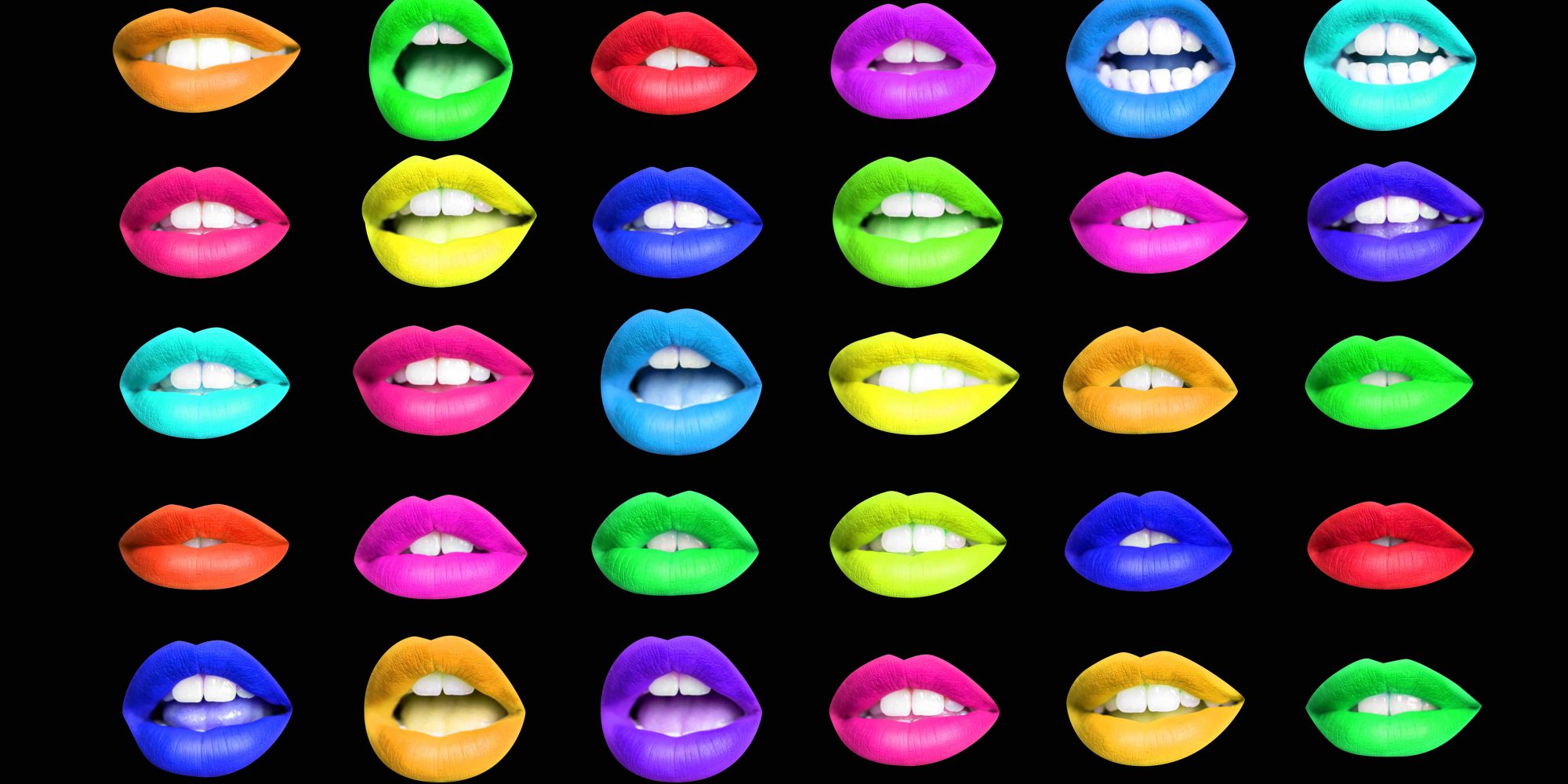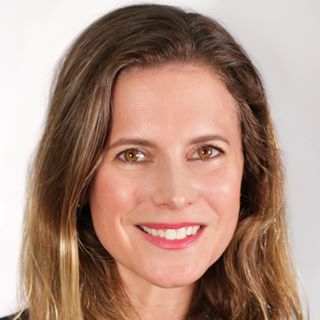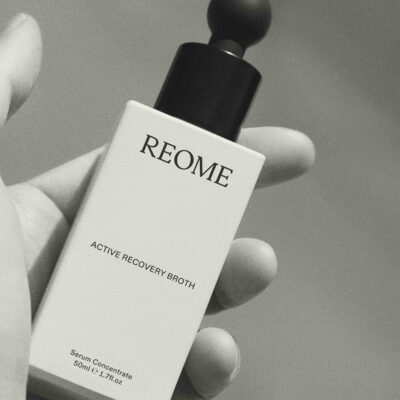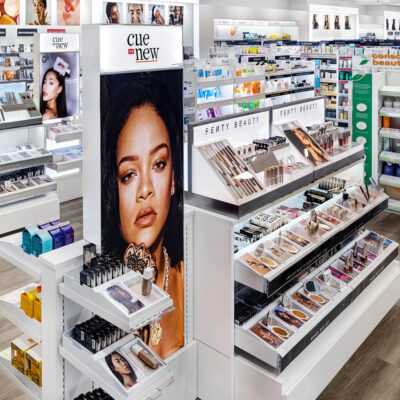
These Beauty Industry Buzzwords Will Be Huge This Year
In this edition of Beauty Independent’s ongoing series posing questions to beauty entrepreneurs, we ask 23 brand founders and executives: What marketing terms big in 2019 should be left behind, and what do you predict will be the industry buzzwords of 2020?
- Peter Boyles Co-Founder and Co-CEO, Eden
I hope 2019 swallows up the term “disruption” for good! It feels like every website or brand deck talks about how they are disrupting their industry. Disrupting the beauty industry, disrupting the supplement market, and so on. It's a term created in Silicon Valley for investors, and I don't think it can be applied to 99% of new startups within beauty and wellness.
Many of these businesses should be proud of what they have created and should aim to become thought leaders in their space. However, most of us are not disrupting industries, we are just hoping we can do our little bit to provide a better product to consumers than what currently exists. No major disruption, just thoughtful creation.
Although brands have been using these terms for a few years now, I think we will continue to see continued growth around the buzzwords “nontoxic" and “hormone-friendly" as consumers become far more cautious and educated about ingredient lists, especially as documentaries such as Toxic Beauty continue to garner significant attention.
- Jasmin El Kordi CEO, Bluelene
I believe "gamification" and "viral content" are overdone, and will phase out going forward. Viral content in particular can't be created for a button push, so is not a real marketing strategy to plan and implement.
My predictions for new industry buzzwords for 2020 are "TikTok influencers" and "effectiveness." TikTok has become such an exciting new social platform that will really capture the gen Z consumer long term. Effectiveness in marketing campaigns will become much more important than efficiency of marketing spend. We test, monitor and measure the results of every advertising dollar. If we see an uptick, we place more budget behind it for effectiveness, instead of focusing on efficiency.
- Melissa Boerema Director of Marketing, InstaNatural
I think “social media marketing” is a term that should stay in 2019. Not because I don't think it's important, but because I think it should be more framed around social media engagement. It doesn't matter if you are running paid traffic ads or publishing organic posts or stories, at the end of the day, you need to be engaging with the audience to create better long-term relationships.
“Omnichannel” will continue to be a big buzzword heading into 2020. With so many touch points, even just digitally, it's a very challenging, but rewarding experience to be able to engage the consumer with your brand by using all these connections to create even more personalized experiences for them. And omnichannel marketing is not just for brands, but retailers, too.
- Brigitte Rozenberg Founder, Mineralgia
“Woke” should stay in 2019. We are all very much woke in the sense of awareness with today’s social media. 2020 is the time to not just be aware, but take action, so my words for 2020 will stay as “empowerment” and “natural healing.”
- Annie Tevelin Founder, SkinOwl
I've never been a fan of the newsletter subject line "You Asked. We Answered.” It's a bit indulgent and serves as a way for businesses to create buzz around something that may or may not have been requested by the amount of people they email. It's been overused, and I'd love to see the marketing showcase the product or innovation itself. Oh, and I think we can retire “New Year, New You” in this next decade, too.
- Kimberlee Keitt-Day Founder and Maker, Ode to Self Skincare
“Anti-aging," "fast," "lightening," “reverse," “organic," anything that alludes to the fact that aging or maturing isn't something to be proud of, or that imperfections and simple life changes like your body's natural responses to low estrogen, which causes hormonal acne, are a disgrace.
As a brand that promotes owning your truth, that means owning every part of your body and its changes, including your changes emotionally, mentally and physically. And those changes play out as we age, grow, and evolve. Terms like that are inhibiting to one's growth and journey in the relationship with themselves and getting to know who they are.
I think that "small batch" will be something that will come more out on the forefront because consumers are becoming more conscious of the way their products are produced and if they're ethical. They tend to lean more toward brands that aren't mass-producing and have a true relationship with their products, from inception to market-ready.
- Elsa Jungman Founder and CEO, ELSI
Empowerment will definitely stay. I think the buzzword will be “aging well,” and “anti-aging” hopefully will disappear. More women thankfully embrace aging, and it is not about going against it, but about feeling good and healthy as we age by preserving our balance and harmony.
- Namrata Kamdar Founder, Plenaire
I am so over self-care, influencers and fast-fashion beauty. Let’s move it on to self-love, transparency and classic, cult products that stand the test of time like Rosebud Salve, Elizabeth Arden Perpetual Moisture Cream 24 and Corpus deodorant, my absolute favorite everyday products.
- TINA RUDOLF Founder, Strange Bird
Such a good question and, even as I ponder the answer, I'm a bit weary. Many of the terms we currently use, particularly in the clean beauty space, can be quite loaded, controversial and triggering. In fact, even the word "clean" is one. But how do brands that have a mission to create products that are effective, natural, clean and made without toxic ingredients communicate that value to our customers? We're still figuring that out. But I think the answer might lie in telling customers what we are about versus what we aren't.
With that being said, I think that the term "spiritual skincare" will grow rapidly in the upcoming years as consumers expectations on what a skincare product/brand can do for them expands. Women are no longer thinking in one-dimensional terms, e.g., how a product will make you look. I see a desire from consumers wanting to get more out of their routine, something more experiential, more meaningful and holistic, something that goes beyond the surface of just looking good.
That's why I also think terms such as "anti-aging" might go extinct (no pun intended) in the near future. As beauty founders, I think it's our responsibility to change the lexicon of how women see themselves aging. Words like "anti-aging" start to feel outdated as we move towards a culture of celebrating who we are as we are.
- Shuting Hu Founder, Acaderma
In 2019, many beauty brands adopted the "clean" moniker for their products. In order to truly be clean, it's more than just a word or omitting a few ingredients. In my opinion, clean is all-encompassing. From sourcing ingredients to production and manufacturing, the entire process should be free from harsh chemicals and toxins, not just a blanket term.
In 2020, I also believe it's crucial that the industry moves toward sustainability, as excessive packaging and unrecyclable materials are becoming detrimental to the environment. This can be as simple as sourcing green material or utilizing recyclable or refillable bottles in packaging. This is our goal in the upcoming year.
- Sirkku Hahn Founder and CEO, Inari Arctic Beauty
Top-growth beauty products are predicted to be anti-agers, amongst others. Demographic trends will support our positioning in this top-segment. For lack of a better word, the term “anti-aging” will remain the best explain this category. Though, we will meet a changing attitude towards a more natural and balanced aging. There is a rising sensitivity to naturally support the aging process and recognize the beauty of aging. It’s a value change and a change in attitude, but we are not there yet to where we want to be: accepting ourselves, accepting aging of women and aging in business, and drawing strength from it. It's good that the discussion around aging will be lively also in 2020.
The amount of people who will want to know more about the company from which they are buying their purchases is growing. More conscious consumers are looking for clean ingredients, authenticity and sustainable packaging. We think that zero-waste and plastic-free initiatives will be of huge interest in the near future as well.
- Ido Magal Founder, Lavido
Affiliates and influencers will remain into this next year, but they’ll evolve into something more authentic. We’ve seen brands partnering with macro-influencers for the past few years that jump from brand to brand, and consumers are losing interest. We will see a shift toward micro-influencers in the 10,000 to 20,000 follower range becoming loyal brand ambassadors and inspiring trust among their audiences.
- Evelyne Nyairo Founder, Ellie Bianca
I cringe each time I read “anti-aging.” We believe that aging is a normal part of life and should be treated as such. For a long time, marketers made it seem like any visible sign of aging is horrifying for women. Thus, we promote aging gracefully instead. We want women to embrace each phase of their lives and take care of their skin. We promote using products that bring out the best in your skin instead of using words that almost age-shame women. It is high time that we move away from the long-standing obsession with youth to inclusivity and accepting of aging.
Buzzwords for 2020: "Aging gracefully" and "skin microbiome." Whenever I am out doing pop-ups or at events where I can interact with consumers, I have noticed their eyes light up whenever I talk about aging gracefully. I laugh and often tell them that the lines and wrinkles are just a sign that your skin has a story to tell. And that story is one of strength and wisdom.
As a chemist and biologist, I know the importance of the microbiome, and I am excited to read more of this as a buzzword. The skin microbiome is a whole community of organisms that live on the skin that includes bacteria, viruses and fungi. Essentially, this little ecosystem controls a lot about our skin, from how well products are absorbed to the overall health of our skin. I want to see buzzwords that aren’t just catchy phrases, but instead informative words that show consumers that they are dealing with products that will bring out all of their skin’s potential.
Self-care has started trending, and I hope to see it continue. Self-care in regard to mental health has become a priority and consumers are looking for the healthy angle to products. We are firm in our belief that a beauty regime should be seen as an important aspect of self-care, and I am excited to read the term "self-care" more in 2020.
- Erin Moy CEO, DNARenewal
One marketing term that should stay in 2019 is "clean" for being both too vague and divisive. I welcome the deep interest in ingredients and the harder look. We're all talking, both as consumers and brands, about what ingredients actually do to our bodies and the environment. I also feel like there has been an overuse of the term. In some cases, products aren't actually "natural," "organic," or "clean," but are marketed as such because there's no real regulation or defining characteristics of what that really means.
There has also been some over vilification of some non-natural ingredients that are actually harmless. I love finding and making products that are as clean as possible. But, for jumping on a bandwagon for the sake of marketing or fearmongering, I think the overuse of these terms can be put to bed in 2020.
I love the awareness to the ingredient panel these terms have brought to both consumers and brands because now (finally!) people are taking a real interest in what they're using, but I want to move away from the fear and sometimes over-exaggerated claims of naturalness that have become the unfortunate side effects of the popularization of the terms.
To that end, I want a beauty buzzword to be "tech" in 2020, both in terms of ingredients and in terms of lifestyle. Why do we believe our iPhones need to be updated every year for the newest feature, but our beauty ingredient tech is stagnant? I love that ingredients like retinol or hyaluronic acid are so popular and well-understood, but there are so many other effective ingredients and technology backed by studies that should be part of the conversation, too. Let's not forget that the discussion of antioxidants was started in the 1950s. Our understanding of aging, anti-aging and DNA damage has evolved so much more in 50-plus years science, and technology has had to dwell on this. Our beauty discussions should too!
The other side of "tech" as a buzzword is how constantly having screens attached or in front of our faces is creating its own crop of beauty issues. Early studies are already showing blue-light exposure from our screens have the same damaging effects as UV light, so our use of tech is definitely something that should be a huge conversation in 2020, not to mention tech neck, the idea that constantly staring down at our phones may have some damaging anti-aging effects of its own. Our lives have changed so much because of the advances in technology in the past decade, let's adapt our beauty routines and ingredients to keep up!
- Camille Obadia President, Camille Obadia
I believe that the marketing terms that should stay in 2019 are “personal care” and “outer beauty.” I predict that the industry buzzwords for 2020 will be "quality instead of quantity," "natural beauty," "personal love" and "buying what your body really needs."
- Tonia Walker Owner and Founder, Ime Natural Perfume
I find this a tricky one because perfume isn't a cosmetic designed to achieve specific beauty results. Perfume is designed to make you feel something and enhance your mood, so I'm not sure the buzzwords I like will fit, but here it goes. Because our perfumes are 100% natural, we not only sitting in the beauty space, but also the health and wellbeing space. Many of our customers are those that are sensitive to mainstream fragrance made with synthetic ingredients, which affects overall health. Our perfumes are much healthier options for people who love perfume, but have not been able to wear it for a very long time.
I've also created our signature Muse range holistically, which means people can choose their scent for the day either by muse, mood, color or scent, as they are all connected and will ultimately enhance the desired mood either way you choose. Plus, it’s a fun way of picking a scent when you don't know how. So, I think the words that I see most relate to "wellbeing," "holistic," "natural" and "organic," but there is a trend for crystal-infused or energy-infused beauty, so I think this will be a feature in 2020 a bit more too.
I'm also noticing a lot of CBD-based beauty products emerging and, even though it’s still an ingredient illegal in Australia, it doesn't seem to stop the interest. Also, "plastic-free" and "sustainable" [will be important terms.] As customers become more conscious consumers, they are aware of how what we purchase can affect this beautiful world we live in.
- Leila Aalam Founder, Beuti Skincare
The words "self-care" and "transparency" have both been used a lot in the beauty and wellness sector. I believe these words carry a lot of weight and often can be used when not applicable. I see there being an even bigger focus on innovation and technology advancement in the beauty sector. We are already seeing virtual technology being integrated into brands to offer online support with choosing makeup shades that match your skin type without leaving your home. That being said, both brands and consumers see a need for a balance between technology and face-to-face interaction. Brands are finding new ways to connect with consumers through personalization and face-to-face connection with pop-up spaces and activations.
- Christy Hall Skin Therapist, Mikel Kristi
Most people don't want to spend 30 minutes for a full skincare routine, and that is why we predict simplistic skincare to be a trend in 2020. Skincare terms that are taking hold and that I predict will really set root in 2020 are “skincare on the go” to better reach our fast-paced society.
A term that can stay in 2019 is “edible skincare.” Edible collagen consumption does not guarantee skin collagen growth, just like eating protein does not guarantee muscle growth without exercising the muscle. A topical skincare product with the right ingredients that seeps below your skin’s surface in the places you need it most like your face is amongst the best for collagen promotion. Our products are loaded with great ingredients.
- SELMIN KARATAS Co-Founder and CEO, Kazani
For 2020, industry buzzwords could be “clean beauty consumer," “beauty a la carte," “custom blend," “artificial intelligence beauty” or “AI beauty” as artificial intelligence is growing and a lot of retail stores will get into customized products to lure customers into the retail stores. “Inclusive beauty” is another term that could be used. The term “gender-neutral beauty” could also be used, and a lot of indie beauty brands could start selling their products in mass.
- Gabriela Salord Co-Founder and CEO, Rowse
These words should stay in 2019: "Highlighting," "unicorn," "glitter"and "Insta-brows."
Predicted buzzwords for 2020: "Sustainability," "traceability," "personalized," "creative," "illuminating," "brightening," "shampoo bars," "anxiety," "scalp care," "lip hydration," "beard care," "bakuchiol" and anything "CBD."
- Ash DePass Co-Founder, STUNN Collective
Self-care is important in and of itself, therefore it should definitely stay. It would be nice for it to transition from trending to commonplace.
Empowerment can probably take a step back, it feels overcooked at this point. Anti-aging needed to be done years ago, it's toxic. It's time that healthy-aging steps up and replaces anti-aging for good. Collagen can stay, but people need to be educated on the differences between products that contain collagen and products that stimulate collagen production.
- Marie Vanderstichel Founder, The Sign Tribe
I would bet on a strong combination of inclusivity and sustainability.
- Jill Rowe Co-Founder, Cultivate Apothecary
- Words and phrases I would love to see stay in 2019: "Anti-aging", "Age-defying", “Youth." All those words that completely diminish the beauty of natural aging. Words and phrases I predict will become more and more popular: Health and Wellness, Beauty and Wellness, Internal Wellness, Cultivate Your Best Self (as opposed to a self that is no longer available, because you are now in your 50’s and not in your 20’s.).
If you have a question you’d like Beauty Independent to ask beauty entrepreneurs, please send it to editor@beautyindependent.com.






Leave a Reply
You must be logged in to post a comment.